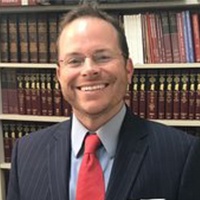Charleston Juvenile Law Lawyer, Mississippi
Sponsored Law Firm
-
 x
x

Click For More Info:
-
Smith, Murphy & Dobbs, LLC
1109 Van Buren Ave Oxford, MS 38655» view mapAccident & Injury and Criminal Defense Smart, Efficient, Precise
Fair legal work for fair compensation. We are straight-forward in our communications with clients and return all emails and phone calls within twenty-four (24) hours.
800-894-6061
Not enough matches for Charleston Juvenile Law lawyer.
Below are all Charleston Criminal lawyers.
John C. Cox
✓ VERIFIEDA native of Cleveland , John C. Cox has been practicing law in his hometown since 1999. John began work as an associate for his late father and cous... (more)
Tommy W. Defer
✓ VERIFIEDThe Law Office of Tommy W. Defer was established in December 2003, and is located in the City of Water Valley, Mississippi (just 20 miles South of Oxf... (more)
Joseph Anthony Murphy
✓ VERIFIEDJoseph Murphy is a practicing lawyer in the state of Mississippi.
 Joseph Murphy Oxford, MS
Joseph Murphy Oxford, MS Practice AreasExpertise
Practice AreasExpertise




